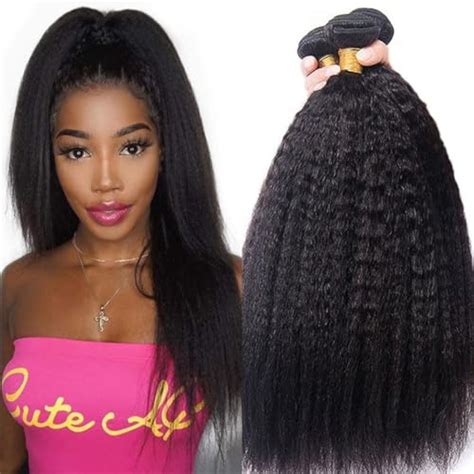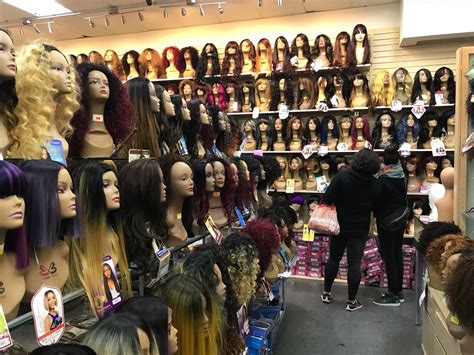Introduction
For African American women, wigs offer an unparalleled opportunity to experiment with diverse hairstyles, protect natural hair, and embrace personal expression. With the vast array of options available, finding the ideal wig can be a daunting task. This comprehensive guide provides expert insights, practical tips, and essential information to empower you in your wig-wearing journey.

The Benefits of Wigs for African American Hair
Wigs offer numerous benefits for African American hair:
- Protective Styling: Wigs shield natural hair from damage caused by heat styling, chemical treatments, and environmental factors, promoting healthy hair growth.
- Versatility: Wigs allow you to instantly transform your look, switching between different styles, lengths, and textures to suit any occasion or mood.
- Low Maintenance: Depending on the type of wig, they require less maintenance than natural hair, saving you time and effort on washing, styling, and detangling.
- Hair Loss Solutions: Wigs provide discreet solutions for women experiencing hair loss due to medical conditions, alopecia, or other factors.
- Self-Expression: Wigs empower women to express their individuality, experiment with unconventional hairstyles, and embrace their unique identity.
Types of Wigs for African American Hair
The world of wigs offers a plethora of options tailored to African American hair:
Lace Front Wigs: Feature a sheer lace front that seamlessly blends with the natural hairline, creating a realistic and undetectable appearance.
Full Lace Wigs: Made entirely of lace, these wigs provide the most versatile and customizable fit, allowing for styling in any direction.
Machine-Weft Wigs: Constructed using rows of wefts sewn onto a cap, these wigs are durable and budget-friendly, albeit less breathable than lace wigs.
Synthetic Wigs: Made from artificial fibers, these wigs offer a wide range of styles and colors but may not be as heat-resistant or natural-looking as human hair wigs.
Human Hair Wigs: Crafted from natural human hair, these wigs provide the most authentic and lifelike appearance, but require more care and maintenance than synthetic wigs.
Choosing the Right Wig for Your Needs
Finding the perfect wig involves considering several key factors:
Face Shape: Choose wigs that complement your face shape. Oval-shaped faces can experiment with a wider range of styles, while round faces may opt for longer wigs with side bangs.
Hair Texture: Consider your natural hair texture when choosing a wig. Curly and coily hair types require wigs designed for kinky textures, while straight or wavy hair can wear wigs in various textures.
Lifestyle: Factor in your lifestyle when selecting a wig. If you have an active lifestyle, opt for durable wigs that can withstand movement. If you prefer low-maintenance, consider synthetic wigs or machine-weft wigs.
Budget: Wigs range in price from affordable to luxurious. Determine your budget and research wigs within your price range.
Wig Care and Maintenance
Proper wig care ensures longevity and optimal appearance:
-
Washing: Wash synthetic wigs with cold water and specially formulated products. Human hair wigs require more frequent washing with warm water and shampoo and conditioner.
-
Styling: Use heat-resistant tools on synthetic wigs. Avoid heat styling human hair wigs too frequently.
-
Storage: Store wigs on a wig stand or in a breathable bag to prevent tangles and damage.
-
Professional Maintenance: Consider regular visits to a wig specialist for professional cleaning, shaping, and repairs.
Common Mistakes to Avoid
-
Choosing the Wrong Size: Ensure the wig fits comfortably on your head, neither too tight nor too loose.
-
Purchasing a Low-Quality Wig: Opt for high-quality wigs that will withstand wear and tear and maintain their appearance over time.
-
Over-Styling: Avoid excessive heat styling or chemical treatments, which can damage wigs and reduce their lifespan.
-
Neglecting Care: Proper maintenance is crucial for preserving the quality and longevity of wigs.
-
Improper Storage: Storing wigs in improper conditions can lead to tangles, breakage, or shape loss.
Conclusion
Wigs offer African American women a myriad of benefits, from versatility and self-expression to hair care solutions and lifestyle conveniences. With this comprehensive guide, you now possess the knowledge and insights to embark on your wig-wearing journey with confidence. By choosing the right wig, caring for it meticulously, and avoiding common pitfalls, you can embrace the transformative power of wigs and unlock endless possibilities for your hair and personal style.
Table 1: Wig Types and Key Features
| Wig Type | Lace Front | Full Lace | Machine-Weft | Synthetic | Human Hair |
|---|---|---|---|---|---|
| Construction | Sheer lace front | Entirely lace | Weft rows sewn onto a cap | Artificial fibers | Natural human hair |
| Appearance | Realistic hairline | Versatile styling | Durable | Budget-friendly | Authentic texture |
| Maintenance | Medium | High | Low | Low | High |
| Cost | Moderate | Expensive | Affordable | Varies widely | Expensive |
Table 2: Wig Care Tips for Different Types
| Wig Type | Synthetic | Human Hair |
|---|---|---|
| Washing | Cold water, specialized products | Warm water, regular shampoo and conditioner |
| Styling | Heat-resistant tools | Minimize heat styling |
| Storage | Breathable bag | Wig stand or breathable bag |
Table 3: Common Mistakes to Avoid with Wigs
| Mistake | Consequence |
|---|---|
| Wrong size | Discomfort, damage to hair |
| Low quality | Short lifespan, poor appearance |
| Over-styling | Damage, reduced lifespan |
| Neglecting care | Premature aging, tangles |
| Improper storage | Tangles, breakage, shape loss |
Table 4: Factors to Consider When Choosing a Wig
| Factor | Description |
|---|---|
| Face Shape | Affects which wig styles are most flattering |
| Hair Texture | Kinky textures require specialized wigs |
| Lifestyle | Active lifestyles necessitate durable wigs |
| Budget | Determines the price range of wigs you can consider |
